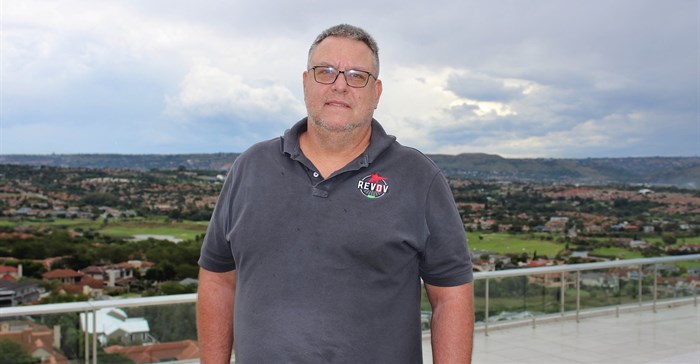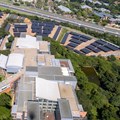No sooner had this year’s State of the Nation Address concluded than the meticulously crafted positive outlook was supplanted by stage 6 load shedding. Although this is a familiar scenario, it does not equate to acceptance, and it will undoubtedly catalyse the next significant phase in the nation’s energy infrastructure.

Lance Dickerson, MD of Revov
High-voltage (HV) LiFePO4 battery energy storage systems, more commonly known as BESS, have been in existence for a while. These systems, which dramatically enhance power reliability prospects for businesses, are anticipated to experience a substantial surge in 2024.
Designed for industrial, commercial, and utility-scale applications, HV BESS systems are becoming increasingly relevant.
Given that the lack of power security and insufficient supply is akin to a colossal lead weight dragging down the economy, it is hardly surprising that we are witnessing a surge in inquiries from key players in sectors such as agriculture, manufacturing, property development, residential and commercial property management, and even education.
Businesses in these critical sectors are coming to realise that they must take control of their own energy security
More and more business leaders are recognising that renewable energy storage is a far more viable, and reliable, alternative to outdated internal combustion generators.
There are three primary reasons for this shift. The first two are commercial. Transporting large quantities of fuel to power generators incurs a significant cost, particularly for remote areas, and this does not guarantee absolute security of supply due to the inherent uncertainties of road travel.
The cost of diesel has risen substantially since the pre-Covid era, while the maintenance and servicing of large generators also impose a considerable financial burden on organisations that may already be operating on tight margins.
Demand for transition
In addition to these factors, there is a global demand for a transition towards renewable energy.
What was once a lofty ideal has now become a central focus worldwide. South African businesses have no choice but to embrace this shift, acknowledging that access to markets such as the EU will become increasingly challenging and restrictive unless businesses, industries, and countries adhere to ever stricter carbon targets.
In other words, it is no longer feasible to assume that a product can be sold in the EU if it is produced or farmed using internal combustion engines or coal power stations. The days of this paradox are numbered.
Lastly, in light of the overwhelming evidence regarding the critical state of the climate and our planet, can anyone truly justify further harm to the environment? If this moral obligation is not yet pressing, consider that a significant portion of our workforce and consumer population comprises Millennials and Gen Z.
Despite their differences, both age groups value purpose and actively pressure their employers and the brands they support to embrace various environmental, social and governance (ESG) causes.
They are also known to reject businesses and brands that fail to do so. Activist shareholders are increasingly demanding accountability, and this pressure will only continue to intensify.
BESS is synonymous with electricity security
It is abundantly clear that the combination of a woefully inadequate electricity supply and various economic and social factors have created an environment in which HV BESS systems are becoming almost synonymous with electricity security in South African industry.
High-voltage battery energy storage systems (HV BESS) have become more applicable and scalable for industrial, commercial and utility settings, thanks to the evolution of technology and benefits. These systems can be built modularly and used for power backup, renewable energy integration, and cost savings.
Businesses are investing in HV BESS systems for different reasons, but they all want to ensure energy security and reduce costs. Some use these systems to store energy from solar panels or turbines, while others need uninterrupted power for critical systems.
HV BESS systems also help businesses cope with demand changes and avoid peak tariffs
HV BESS systems can also improve grid stability and integrate renewable energy sources by managing supply and demand fluctuations, reducing transmission losses, and providing grid support functions.
Eskom has announced a battery system in the Western Cape for this purpose. The local industry has enough capacity and expertise to support this shift.































